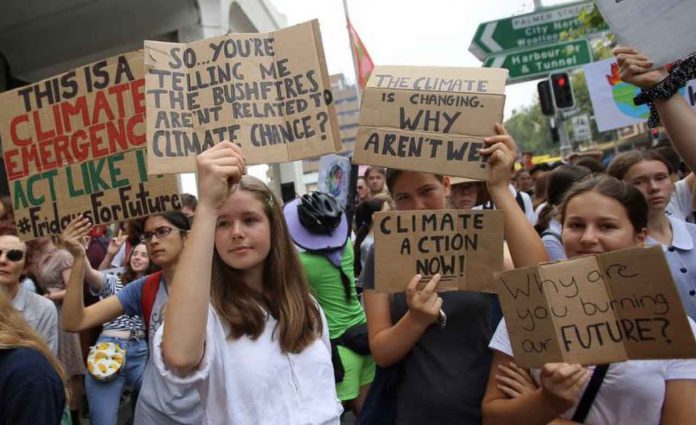
Carbon dioxide levels surged to 413.2 parts per million in 2020, rising more than the average rate over the last decade despite a temporary dip in emissions during COVID-19 lockdowns
By Emma Farge and Gerry Mey
GENEVA/GLASGOW – (Reuters) – Greenhouse gas concentrations hit a record last year and the world is “way off track” on climate goals, the U.N. weather agency said on Monday, showing the scale of the task facing governments scrambling to avert dangerous levels of warming.
A report by the World Meteorological Organization showed that carbon dioxide levels surged to 413.2 parts per million in 2020, rising more than the average rate over the last decade despite a temporary dip in emissions during COVID-19 lockdowns.
Secretary-General Petteri Taalas said that the current rate of increase in heat-trapping gases would result in temperature rises “far in excess” of the 2015 Paris Agreement target of 1.5 degrees Celsius above the pre-industrial average this century.
“We are way off track,” he said. “We need to revisit our industrial, energy and transport systems and whole way of life,” he added, calling for a “dramatic increase” in commitments at the COP26 conference beginning on Sunday.
The Scottish city of Glasgow was putting on the final touches before hosting the climate talks, which may be the world’s last best chance to cap global warming at the 1.5-2 degrees Celsius upper limit set out in the Paris Agreement.
The stakes for the planet are huge – among them the impact on economic livelihoods the world over and the future stability of the global financial system.
Saudi Arabia’s crown prince said on Saturday that the world’s top oil exporter aims to reach “net zero” emissions of greenhouse gases, mostly produced by burning fossil fuels, by 2060 – 10 years later than the United States.
He also said it would double the emissions cuts it plans to achieve by 2030.
Australia’s cabinet was expected to formally adopt a target for net zero emissions by 2050 when it meets on Monday to review a deal reached between parties in Prime Minister Scott Morrison’s coalition government, official sources told Reuters.
The ruling coalition has been divided over how to tackle climate change, with the government maintaining that harder targets would damage the A$2-trillion ($1.5-trillion) economy.
In Berlin, officials from Germany and Canada were set to present a plan about how rich countries can help poorer nations finance the overhaul needed to address climate change.
Wealthy countries have so far failed to deliver their 2009 pledge to provide $100 billion per year in climate finance to poorer countries by 2020.
A Reuters poll of economists found that hitting the Paris Agreement goal of net-zero carbon emissions will require investments in a green transition worth 2%-3% of world output each year until 2050, far less than the economic cost of inaction.
In London, climate activists restarted their campaign of blockading major roads by disrupting traffic in the city’s financial district.
(Writing by Michael Shields, Editing by William Maclean)






